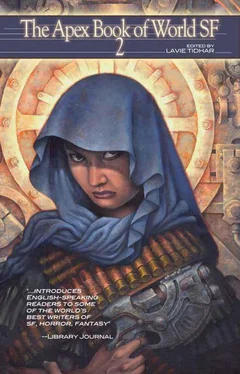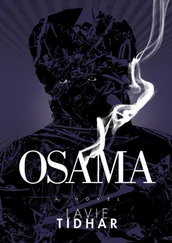“It’s…” he began but then stopped. He felt a slight shift. Nothing large, but for a moment he felt a burst of nausea.
Eyo stopped. “I guess I can’t do it.”
“You just did,” Katulo said. He was winded.
“You don’t have to say that.”
“I’m not lying. You did it. I can’t believe it.”
“I didn’t see a ghost.”
“That comes much later. You Woke an echo of the revulsion either you or some other boy felt the first time that they skinned an animal. I could feel it.” He was now shouting with joy. He embraced Eyo hard. He had passed on every other skill he knew in one form or other, but he had never been able to find an apprentice for the most valuable. He realised now just how much he had underestimated Eyo because he had not seemed naturally bright. It took him longer to grasp simple concepts than other apprentices. Katulo had tested each for their capacities to Wake but he had not even considered testing Eyo.
Katulo began planning to cancel all other instruction for Eyo. Every lesson would now be about Waking. The rest could wait. Tomorrow, they could… And then Katulo stopped dreaming. Tomorrow he had a more important task. Tomorrow he had to try and use reason to stop violence from returning to Burundi. Harsh memories slipped back into his conscious mind. No, he thought, reaching forwards and taking the now skinned and skewered rabbit from Eyo. He thrust it into the fire. There was a spark and a sizzle. Right now, he decided, he would just celebrate; he would laugh and eat well with Eyo. Let all the pain and tears come tomorrow.
When they got back to the village, the first thing Katulo did was check on Chama. He still was not conscious, but his breathing was easier. He let Eyo sleep—the boy had found it difficult to sleep in the forest—and went looking for Osati. He expected him to be at the market. It was the place where most people would be gathered on a Saturday morning. When he reached the market kiosks, his theory was confirmed.
Osati stood on a makeshift podium of six upturned crates. He shouted loudly and his arm gestures punctuated his every word. “Too long we have been pushed down,” he yelled. There was a chorus of assent. Some listened to him as they shopped but most of the people stood still and listened closely. “Because of history we have stayed quiet. Over and over we are reminded of what our fathers did to their fathers as an excuse. They forget what their fathers did to ours. But why should I expect anything to be fair. That is childish of me. After all, there have been no free elections in twelve years. After all, the high positions of the government are all occupied by Hutus. After all, when there is a drought their families get relief while ours have to struggle.
“We have not always been weak and subjugated. We once had influence and Tutsi children could walk with pride. Our children…”
Osati continued on the theme of children for a few minutes and then ended by promising that a new future for Burundi could be shaped. There was clapping and chanting when he finished. Katulo had to admit Osati’s words were stirring. Osati walked through the crowd shaking hands. People looked at him with the reverence they would give a prophet.
When Osati saw Katulo he smiled. “I would not have expected to see you here. You’ve never come to see me speak before.”
“I didn’t want to encourage you.”
“You’ve finally given up hope that I’ll give it all up and decide to be a healer?”
“Maybe.”
“How is Chama?”
“He’s recovering. Not conscious yet.”
“I must apologise to you,” there was a fervour in Osati’s voice. “When I brought Chama to you, I was tired and angry. I did not treat you with respect.”
“I understand.”
“I have been angry with you for a long time. At the wedding, when you did the Waking, I realised part of me resented that you never could teach me that skill.”
“I pushed you too hard.”
“You were right when you said the wedding should go on,” Osati admitted. “We needed that beauty in this time of struggle.”
Katulo felt bothered by Osati’s use of the word “struggle”. His former apprentice fancied himself as a hero, leading Burundi boldly to a Third Revolution. “There are some things that I also have to admit you are right about,” Katulo conceded. “There have been no elections, and the government is mostly Hutu. You are right that changes are needed, but this is not the right way.”
“What way do you think this is?”
“Violence.”
“Did you hear me say one word about violence?”
“You were throwing stones in the city.”
“We hurt nobody. Chama is the one lying in your clinic.”
“I went to see Minister Kalé.”
“And what did he say?” Osati’s voice was rich with contempt.
“He will get the boys who attacked you to apologise publicly, if you apologise publicly for the vandalism.”
Osati laughed raucously.
“It would just be to calm things down.”
“Things don’t need to be calmed down. I can’t believe you expected me to agree to this. Maybe if they are put on trial.”
“Maybe later.”
“Go away, Katulo. Stick to tending patients in your clinic.”
Osati started to turn away.
“If you had only been alive during the massacres.”
Osati whirled, filled with rage. “It always comes back to that with you old people. Oh, oh, our terrible past. Oh, the lives lost in the massacres. It’s the past. What? We should be docile and let ourselves be ground under the boot of the Hutus because of a memory? ”
“You can’t know how bad it was. When I was fourteen I followed my father and some men to a school…”
“I mourn for all the dead but I am not dead. These people here are not dead. Right now, right here, we are being oppressed.” A woman standing nearby clapped her hands at Osati’s words. Osati turned and delivered her all his attention.
Katulo leant heavily on his walking stick. What did I expect when I came here? That he would agree? No. I knew this is what would happen, but I had to try anyway. Katulo walked away from the market slowly. His body felt more exhausted than it had in a long time.
When Katulo walked into the clinic, he knew with just one look at Chama. He walked forwards and pressed a finger against his pulse. It was as he had feared. Chama was dead.
How could it have happened? He had been recovering, but Katulo knew as he thought this that nothing was certain after a wound like Chama’s. A sudden seizure or a spasm could change everything. If I had only been here, he cursed himself. Why did I have to go to that bloody market? Maybe I could have…
The thoughts faded away and Katulo let go of his walking staff. He crumpled to the floor. His eyes were focused on Chama’s corpse. He knew what he was meant to do next. Contact the family, tell them what had happened, say those empty words of condolence, and then… what? Osati would find out. The rage of the villagers would be at a peak. And then…what? Suddenly, he was fourteen years old again, standing in the corridor of the primary school. He felt dizzy. He wished he could hide somewhere no-one could find him. If only he could disappear with Chama’s body and if no-one knew, if it had never happened, if he went into a dark cave far away, if no-one ever found out, if he never told anyone, if maybe…
The door opened. “…I thought I heard you. I didn’t know where you…” Eyo saw Katulo on the floor. He crouched beside him. “Are you all right? Did you fall?”
Katulo spoke slowly. “Go to the home of Chama’s family. You must tell them…”
Eyo looked at the corpse. “When… How?”
Читать дальше












